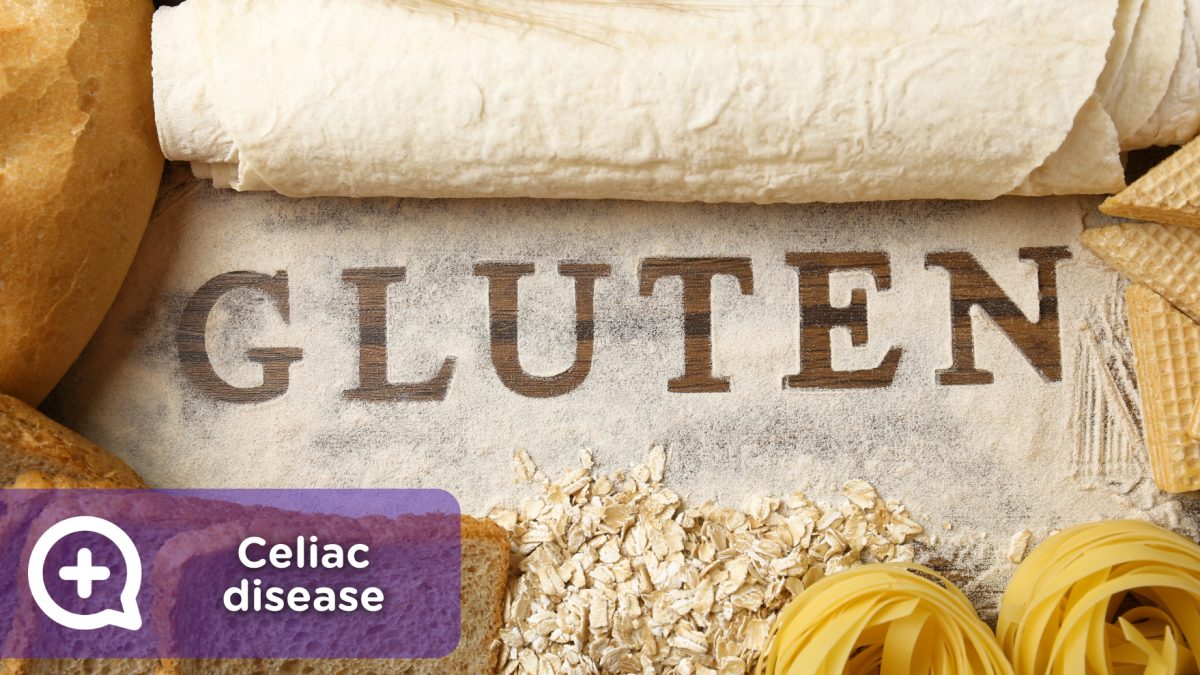If you suffer frequent cramps, diarrhea or vomiting, you may wonder if you are intolerant to gluten. According to the FACE (Federation of Celiac Associations of Spain), 1% of Europeans could be celiac, but 75% of them are undiagnosed. This is mainly due to the fact that the symptoms are very different from one person to another and that the diagnosis is not simple. However, intestinal discomforts are not synonymous with celiac disease so do not rush to leave the gluten yet!
Tests needed to diagnose Celiac Disease
There is not a single test that accurately determines gluten intolerance. Therefore, a combination of 3 different tests is usually used:
- Serology (blood analysis), which identifies if our body is making antibodies against gluten.
- Intestinal biopsy, which detects if the intestine is suffering damage by the intake of gluten. In the biopsy, a probe is inserted into the small intestine and anesthesia is necessary.
- Genetic analysis, which determines if we have a genetic predisposition to suffer from this disease. This test can be done in blood or with a saliva sample.
If at least two of these three tests are positive, the person is usually identified as celiac. Even so, before unclear results, an exclusion diet can be made, which consists of completely eliminating this protein from the diet for a few months and then repeating the tests. If at that time the intestine has recovered and symptoms have disappeared, celiac disease is diagnosed.
Can gluten damage me if I am not celiac?
The symptoms of gluten intolerance can be very nonspecific. That is, other diseases can give similar symptoms, such as irritable bowel, Crohn’s disease, etc. Therefore, it is not a good idea to take for granted that we have celiac disease.
On the other hand, there are some diseases that can be confused with celiac disease, since wheat can also annoy the intestines: non-celiac gluten intolerance and wheat intolerance. However, these intolerances are very rare and are always diagnosed after ruling out celiac disease. Therefore, it is never advisable to stop eating this protein on your own initiative, because it could falsify the results of the tests requested and be left without an adequate diagnosis.
Celiac disease, does it have a cure?
Celiac disease has no cure, but a very effective treatment: a diet with zero gluten. By eliminating this protein that some cereals contain completely from the diet, the symptoms and added risks disappear. Of course, you have to be very strict and rigorous.
Myths
There are two myths about the gluten-free diet: that it is easy and expensive.
First of all, it is not an easy diet because almost all processed products contain considerable amounts or traces of it. From sausages and sausages to dairy desserts and drinks, there are few that are saved.
Second, it does not have to be an expensive diet. It is true that the products processed gluten-free (must carry the corresponding certificate) have a higher price. But, on the other hand, you can simply dispense with them and take a diet based on fresh and unprocessed foods that are naturally gluten-free and, in addition, very healthy.
So yes, it is true that you will have to live without many things. But, on the other hand, you can adapt to a much healthier diet based on legumes, meats, fish, eggs, fruits, vegetables, tubers and cereals and gluten-free seeds such as rice, corn, quinoa or amaranth. You will enjoy eating and, most importantly, you will be taking care of your health.
*Content validated by the mediQuo medical team.



